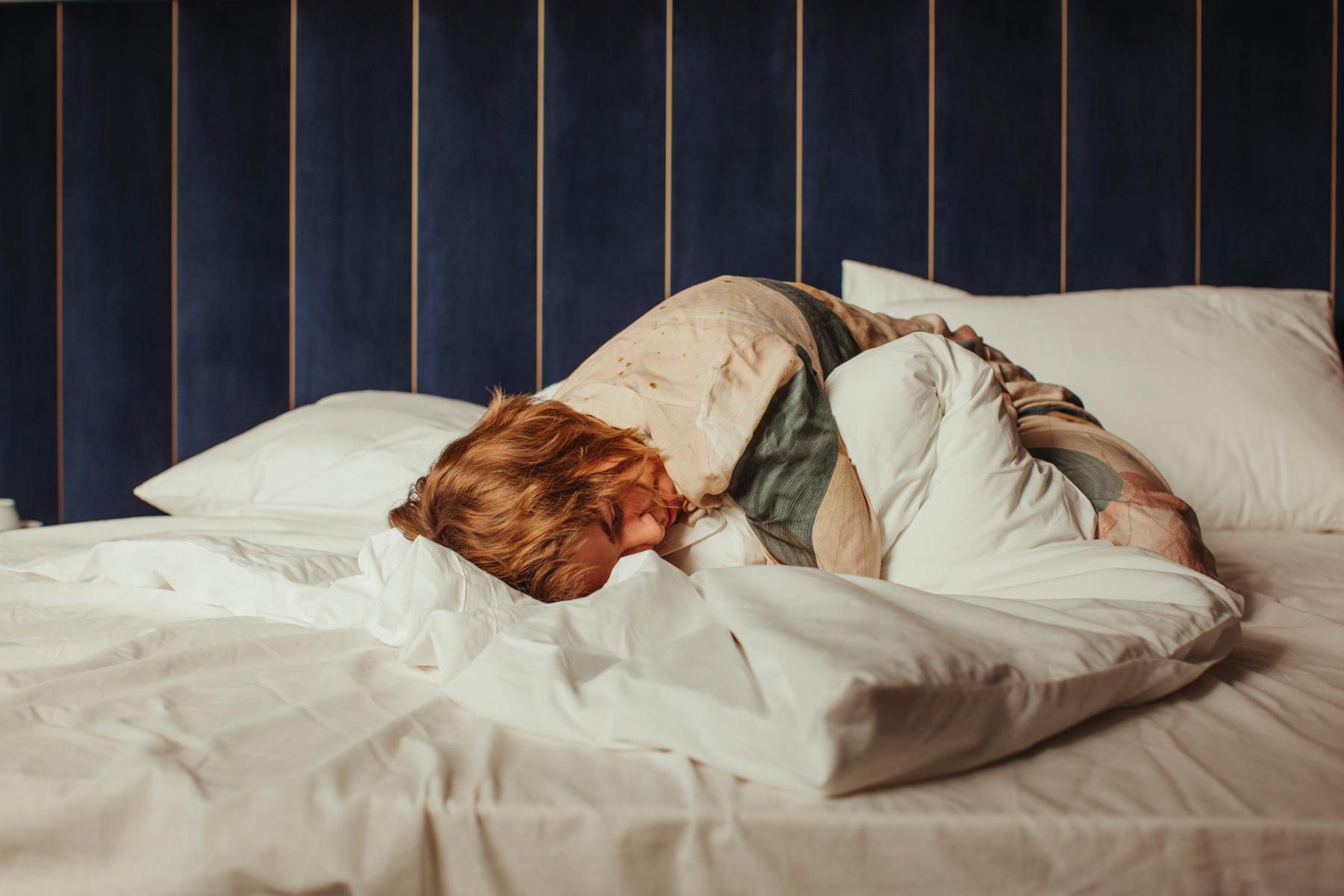What is chronic insomnia, who is at the highest risk, how it's diagnosed, what the treatment options are, and more.
It’s normal to have trouble sleeping every now and again—especially considering just how many factors play a role (stress, hormones, aging, diet...the list goes on). But how do you know if occasional nights spent tossing and turning are symptoms of a sleep disorder or medical condition? When does “poor sleep” cross the line into insomnia? How do I know if it’s short-term insomnia or chronic?
Here’s what you need to know:
Although the term “insomnia” is thrown around quite a bit, by scientific standards, it’s specifically defined as “inadequate quantity or quality of sleep characterized by a subjective report of difficulty with sleep initiation, duration, consolidation, or quality that occurs despite adequate opportunity for sleep, and that results in some form of daytime impairment and has persisted for at least one month.” (1)
To put it simply, if you’ve experienced trouble falling or staying asleep at least three nights a week for over a month, despite doing everything right (cold, dark room with minimal pre-bed screen time and no interruptions throughout the night), you may be suffering from chronic insomnia.
This typically (but not always) causes fatigue (i.e. low energy) rather than Excessive Daytime Sleepiness, or EDS (i.e. fighting to stay awake).
Sleep Foundation has officially classified six types of insomnia. (2)
In addition to chronic insomnia, there’s...
- Short-term insomnia (aka acute insomnia), which is typically caused by a temporary stressful event
- Sleep onset insomnia, which is when you just have difficulty falling asleep (even after 20-30 minutes in bed)
- Sleep maintenance insomnia, which is when you just have difficulty staying asleep (waking up at least once every night and struggling to get back to sleep even after 20-30 minutes)
- Early morning awakening insomnia, which is when you wake up considerably earlier than you want to
- Mixed insomnia, when you have some combination of the above
Up to 25% of children, 35% of adolescents, and 45% of young adults suffer from insomnia symptoms; (3) however, according to the latest research, there are certain factors that may put some people at a higher risk.
Genetics
Researchers estimate (4) that 35% of those with chronic insomnia have a family history of it, with the mother being the most commonly affected family member. However, because sleep is affected by so many factors, it’s difficult to definitively pinpoint a genetic attribution.
Childhood insomnia
Insomnia symptoms in children are likely to persist into young adulthood and significantly more likely (43%) to develop into a disorder compared to children who do not have difficulty sleeping. (5)
Mental health
~75% of adults with depression suffer from insomnia, (6) and over 90% of those with military combat-related PTSD have been found (7) to experience symptoms of insomnia.
If you haven’t already done so prior to your appointment, your doctor/sleep specialist will likely ask you to keep a sleep diary for at least two weeks in order to track sleep and wake times, eating times, exercise times, and general mood. This way, s/he will be better equipped to identify any recurring patterns, properly diagnose chronic insomnia, and suggest a tailored course of treatment to help you get better sleep on a regular basis.
Tools your doctor may consider using in diagnosing insomnia include:
- Actigraphy: A small motion sensor that you wear for up to two weeks in order to measure sleep quality
- Blood tests: To screen for thyroid hormone imbalances or other medical conditions that might cause insomnia
- Mental/physical health questionnaires: Insomnia can occur by itself as an independent problem or in conjunction with mental and physical health problems, which is why questionnaires about alcohol use, smoking, caffeine use, etc. are common.
If it’s determined that insomnia is the culprit, your doctor will also work with you on making sustainable behavioral change to your evening routine, sleep environment, and sleep habits, including (but not limited to) these lifestyle changes:
- Avoiding clock watching
- Developing a nighttime routine
- Limiting blue light exposure
- Practicing proper in-bed behavior (don’t spend too much time awake in bed)
- Getting on a consistent sleep schedule
- Progressive muscle relaxation techniques
S/he may also refer you to a behavioral sleep medicine specialist trained in cognitive behavioral therapy for insomnia (CBT-I). CBT-I is recommended over traditional sleeping pills (sedative-hypnotics) because it is as effective, (8) not to mention safer with longer-lasting benefits.
In fact, sleep hygiene and behavioral education for workers with insomnia was shown (9) to decrease average Pittsburgh Sleep Quality Index (PSQI) scores by 1.0 for the intervention group (compared to a 0.9 increase in the control group), an indication of significant sleep quality improvements.


